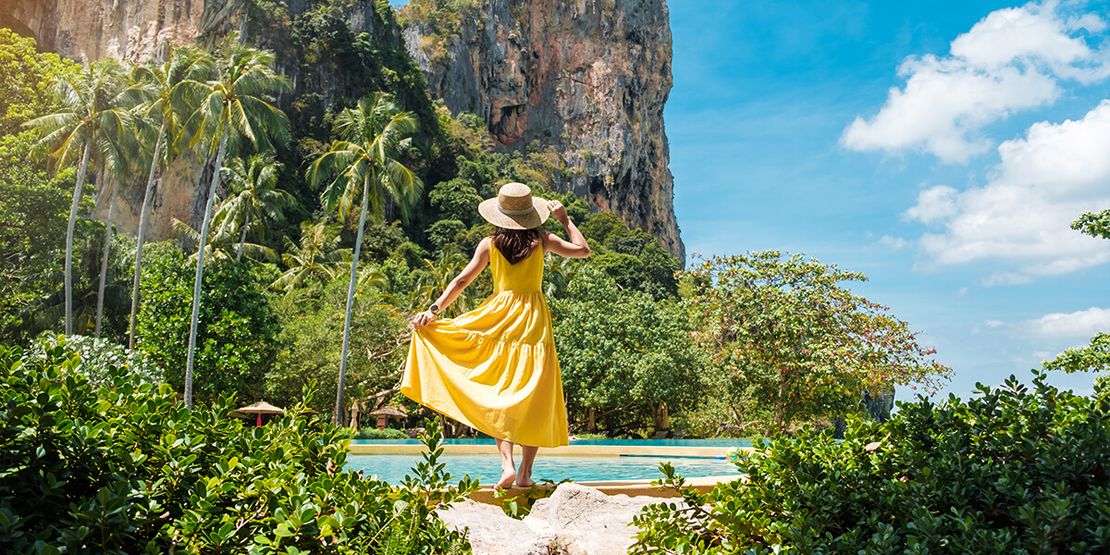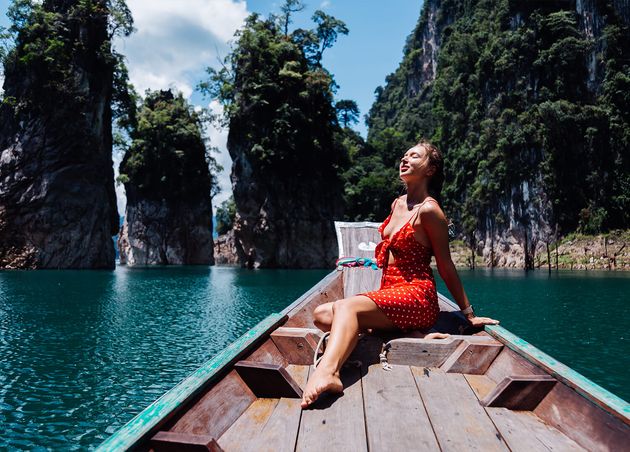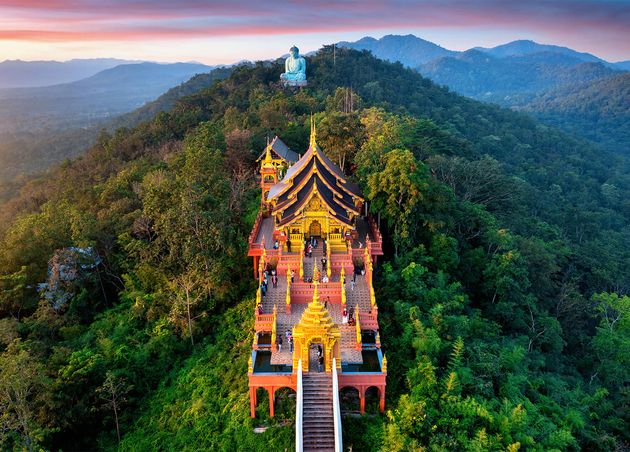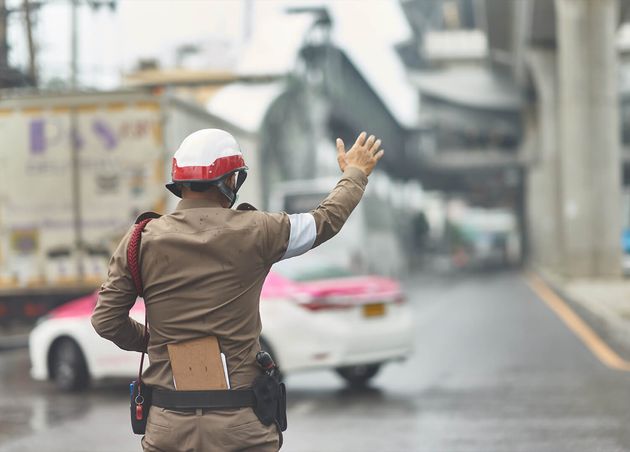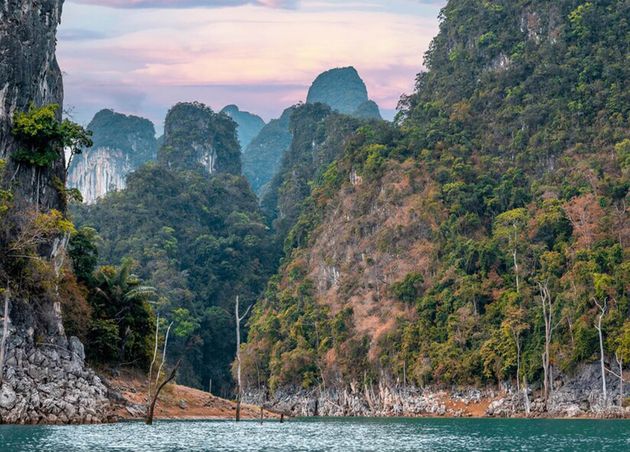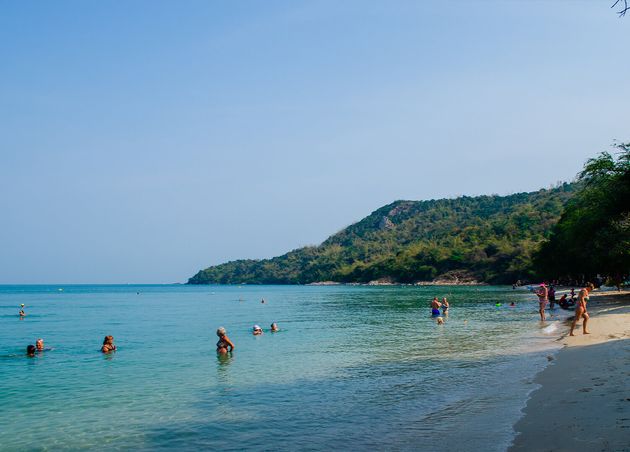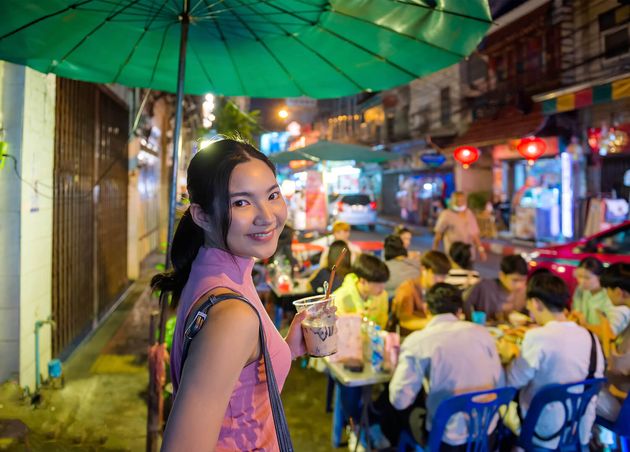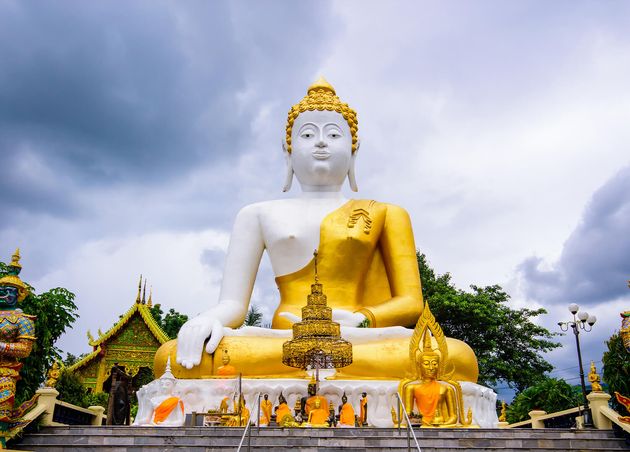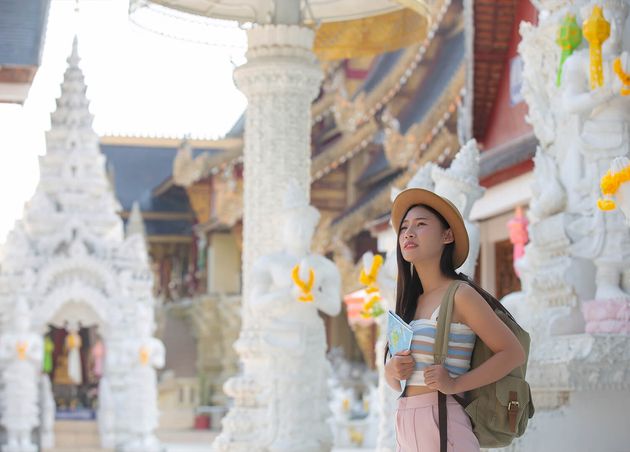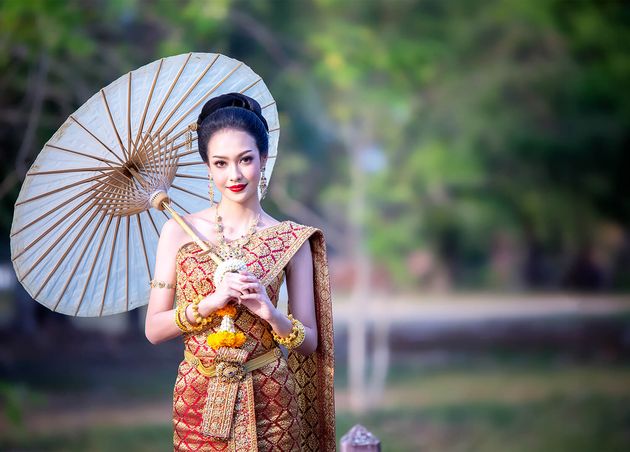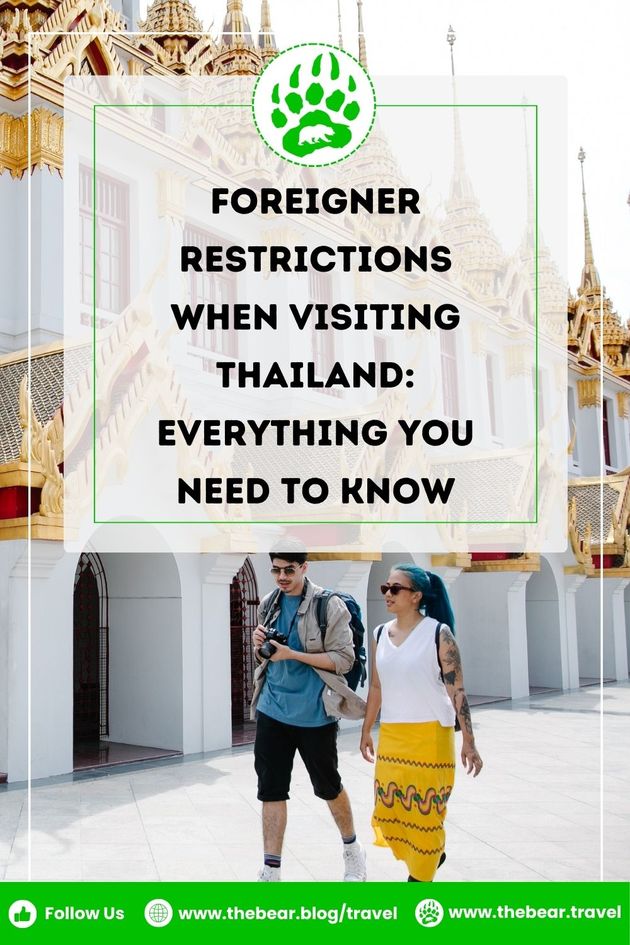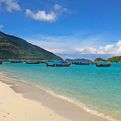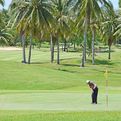Foreigner Restrictions When Visiting Thailand: Everything You Need to Know
Have you ever heard that Thailand has some places restricted for foreigners? Yes, you heard that right because some special places are restricted in Thailand for foreigners to visit due to some unbelievable truths which will make you feel curious while encouraging you to visit Thailand.
You may already know that special areas are off-limits for foreigners in many countries by law. But in addition to that, in Thailand, some places restrict foreigners from visiting, particularly for their specific truths like security problems, economic conditions, cultural issues, environmental impacts, and the country's values.
Why is that? It will be completely different from what you see from the outside. Thailand restricted foreigners' visits to such places. Each place has its secret truth hidden from the outer world. The country has long been a world-famous tourist destination, which tempts with its natural beauty and exciting culture.
But so many whispering tales have a hint of truth in them. Beautiful seaside, relaxed atmosphere, comfortable climate, centuries-old culture, and art are the attractions that are very skillful ways to cover the real side of Thailand. So, we thought we'd clean up some crazy things and tell some truth about Thailand's places restricted for foreigners to visit.
Restricted Places with Hidden Truths in Thailand
If we look at Thailand's restricted places for foreigners to visit, we will never get an idea. For example, I searched for the idea before compiling the article but could not find any. So, I have to go deeper about the truth, and at the end of this article, you'll definitely be able to know so many hidden facts about Thailand.
Restrictions and Thai Police Checkpoints
Restrictions have been in place for foreign arrivals in Thailand's Southernmost provinces of Pattani, Yala, Narathiwat, and Songkhla. Travelers should defer non-emergency travel to those areas if they think more about their safety. These provinces experience criminally and politically motivated violence through shootings, ambushes, and bomb attacks.
Due to that, authorities have special security measures for foreigners, like random searches in affected areas. So, foreigners who wish to travel to the border areas should be checked in with Thai tourist police to give their support to overcome threats against their freedom on the Thailand tour. Outside the main towns in Thailand, police and military checkpoints are actively manned, and travelers may be asked to produce ID. This arises due to sporadic conflicts between Thai security forces, armed criminal factions, and drug traffickers along the border between Thailand and Myanmar.
Foreigners are allowed to enter Myanmar solely through official border checkpoints and following the acquisition of any necessary permissions from Thai authorities. Foreigners should also take extra care in border areas and follow the instructions of the Thai authorities. Furthermore, it's important to note that not all land border crossings into Laos are accessible to foreigners, and obtaining a Laos visa in advance might be necessary to facilitate border crossing. The specific delineation of the border is still being finalized. Much of the exact border is still being agreed upon. However, if you obey the rules and regulations of the area police, you're safe and can enjoy your visit.
Thai forces put checkpoints not only to save people but also to save nature. There are some Thai checkpoints, especially around national parks outside Krung Thep Maha Nakhon (Bangkok). The truth behind those restrictions is to stop illegal wood transport in the area. Due to the increase in illegal forest cutting, some specific rules and regulations are formed even for wood furniture transport from the rural areas to the cities in other regions of Thailand.
Restrictions for Foreigners Visiting Islands, Beaches, and National Parks in Thailand
Thailand is a famous tourist destination with its beaches and wildlife. Still, it has recently suffered from overcrowding, with so many foreigners visiting yearly. Did you know that Thailand plans to close its national parks for a few months each year due to all problems caused by tourism and with the hope of reducing environmental damage at popular tourist spots?
Koh Tao Island is a tiny spit of land in the middle of the Gulf of Thailand. There are countless budget-friendly beachside hotels, bungalows, white-sandy beaches, and beautiful seaside. So, it is way up there on the list for most travelers. But, Koh Tao has recently gotten a bad reputation and limitations for foreigners due to a spate of deaths involving foreign tourists. Accordingly, the foreigners' visits are limited for their life security. But, remember that it would be a great tourist destination again in Thailand.
Last year, access to Maya Bay on Phi Phi Leh Island was restricted for foreigners due to extensive environmental degradation, primarily attributed to the substantial coral loss. With the hope of giving Maya Bay's ecology more time to recover, Thai authorities have extended the ban on visitors by two years. Following the imposition of visitor restrictions, a significant number of sharks have been observed swimming in the waters of the bay. It is an excellent example of the dark side of tourism, and that's the truth inside.
As well as Maya Beach and others, Thailand have closed another island, Koh Tachai, in the Andaman Sea to foreigners to control the negative impact on the environment. With the island's beauty, Koh Tachai has become a popular tourist site for Thai and foreign tourists. It has caused overcrowding and the degradation of natural resources.
By allowing foreign tourists to stay overnight on the islands in Thailand, the islands’ ecosystem and natural resources unavoidably suffer from severe environmental impacts. As a result, the Thai government banned holidaymakers from staying overnight on the Similan Islands. The primary reason behind this is that establishing accommodations and tourist facilities contributes to pollution in various forms.
If you want to roam on the beautiful seaside in moonlight evenings, the best thing to do is protect the places you visit. Then, all the destinations may be waiting for you.
Restrictions for Foreigners Visiting Navy-Owned Places in Thailand
One of the great beaches hidden among the forested coastal hills on Navy-owned land near Pattaya is Hat Sai Kaew. It is one calming spot in a heavily populated province of Thailand. Hat Sai Kaew Beach can only be accessed by exchanging the ID. Monday to Friday you can drive there by yourself. But you must use the shuttle bus service on weekends and public holidays. More importantly, no boats are available to tourists at Hat Sai Kaew, as it is home to an obstacle and ropes course used for Naval training exercises.
The Thai navy controls 27 islands in the area, including Ko Phai, Ko Maniwichai, Ko Lin, Ko Khram Yai, and Ko Chang. Most of these are undeveloped and accessible only by boat tour or private boat. However, setting foot on most of the land is forbidden for foreigners unless you’re an approved marine researcher or employed by the Thai navy. Day trips are possible via a public boat service. Still, foreigners need to be accompanied by a Thai citizen to gain entry. Most of the areas are used exclusively for Naval training tasks. Due to that, approaching these islands is uninvited for foreigners, and that's the truth.
Another beach under the control of the Thai navy is Hat So, which is closed to the uninvited public and foreigners. The truth behind the restrictions is similar to the Hat Sai Kaew, but access through the navy area is not allowed for foreigners due to security issues like protecting from spying. So, only Thais can access this Beach.
Behavior Restrictions for Foreigners’ Safety in Thailand
Thailand restricted and formed rules and regulations for the nightlife of foreigners now. The truth behind it is due to unlawful activities going on during nighttime. Drink spiking and rapes have been reported in some tourist destinations around Thailand, with male and female victims in Koh Tao, Koh Samui, Pattaya, and the Full Moon Party on Koh Phangan. But Thai nights are worth visiting during your stay in Thailand. Don't take too many drinks and stay safe to enjoy unforgettable nights in Thailand.
To drive a car or ride a motorcycle in Thailand, foreigners must have the correct license and appropriate insurance for their vehicle category. Foreigners can drive with an international driving license in Thailand - as long as they stay at most 90 days. And after 90 days, a foreigner is not classified as a tourist; it's classified as a long-term stay. So, simply after 90 days, you need a Thai driver's license. This is because there are a high number of road accidents in Thailand. Most dangerously, Thailand is one of the countries for fatalities on motorcycles.
At the same time, Thailand's coastal areas have some limitations for foreigners to take care of when swimming off coastal areas, especially during monsoon season. Sometimes, strong riptides may drown people in some tourist destinations like Phuket, Koh Chang, Hua Hin, Cha-am, Rayong, Pattaya, and Koh Samui. And also, jellyfish can swim close to the shore during the rainy season. Their sting can be fatal. So, if you hope to swim during the rainy season, remember the warnings.
Many interesting places in Thailand are accessible to all people. But wheelchair access for foreigners Is often limited, and the truth is uneven paving, street furniture, and a lack of lifts, ramps, etc. This is because some vehicles have limited storage space for wheelchairs—for example, buses, public transit systems, and many taxis.
Jungle trekking in Thai jungles is limited for foreigners because elephant treks and rides can be dangerous, especially when the elephants are mistreated or not handled properly. Sometimes, handlers lose control of their elephants, and foreign tourists may get damaged due to that. A standout sanctuary for rescued and retired animals is the Elephant Nature Park located near Chiang Mai. This distinction arises from its possession of a medical center, a proficient caregiving team, and expansive natural landscapes for the elephants' habitat. The park's focus is primarily on the well-being of the elephants, with a lesser emphasis on catering to tourists.
And the other reason is tourists are often offered photos of illegally procured wildlife in places like Pattaya, Phuket, Ao Nang, Koh Samui, and sometimes even Krung Thep Maha Nakhon (Bangkok). Keep in mind and act accordingly, as wild animals can be extremely dangerous. But, if you travel with a professional guide, you will enjoy the Thai jungle life.
Rules and Buddhist Values in Thailand
In Thailand, a lot of behavior reflects Buddhist values. So, many temples have different guidelines for foreigners, and those restrictions may be lifted because of their hard beliefs.
A few examples are:
- Never put bags on the floor and remove your shoes when entering homes, stores, and temples.
- The high-value Thais place on education. So, don't put bags on the floor.
- As a sign of cleanliness and respect, some places in Thailand may require you to remove your shoes.
- Did you know the most extreme faux pas to keep in your mind is touching one's feet and someone else's head? It is because people have a belief that the head is the holiest part of a person's body. In contrast, the feet are the lowest and dirtiest part of a person's body.
- You should adequately dress when you visit the Grand Palace.
- Your shoulders and legs should be appropriately covered; otherwise, they might not allow you to enter the Grand Palace and Wat Pho, the place just 10 minutes away from the Grand Palace.
Don't misunderstand the traditions; take them as a new experience in your travel life. In 2016, in Wat Doi Suthep, the most famous Temple in Chiang Mai, a Chinese tourist was suspected of kicking a temple bell, a sacred object which should not be on one's feet. So visitors should avoid such things and show respect at places of worship.
There are guidelines for tourists at every sacred Temple. Such as, at Wat Chedi Guang, one of Chiang Mai's famous temples, a tourist usually finds a line of international travelers waiting to pay a small entrance fee. After receiving the ticket, the tourist walks in a narrow corridor displaying information in English and Chinese concerning the rules of the temple space.
Billboard communicates the appropriate ways to behave and dress oneself. After the tourists review these guidelines, a security guard checks the entrance ticket and evaluates whether the tourist needs to borrow loose clothing to cover the immodest outfit.
Quick Tips for Foreigners When Visiting Thailand
- Travelers are advised to dress when visiting religious sites modestly. Thailand is mainly conservative with Buddhist and Muslim values, so please dress and act respectfully.
- Protect and respect the values of Thais.
- Be on your guard during nighttime against pickpockets and bag snatchers, especially from thieves on motorbikes or when traveling in open transport.
- Don't forget to avoid solo dates through less-traveled areas at night and take care when traveling in unfamiliar areas.
- The most important thing is to save the environment. Just enjoy your trip and don't do any harm to the places.
Many Thai people are very poor. So, their main livelihood is their income from the tourist industry. Due to their economic situation, they will do what they can. So, keep calm and enjoy your journey. Try and hire a local guide if possible. If not, you can put money back into the local community and learn from someone who knows the area and culture.
All-in-One Quick Recap
- Thai police checkpoints in Southernmost provinces, around national parks, and outside the main towns
- Islands like Koh Tao, Maya Bay, Koh Tachai, and Similan islands
- Navy-owned areas like Hat Sai Kaew, Hat So
- Behavioral restrictions
- Driving license
- Special rules and restrictions in Buddhist places
- Some coastal areas
- Jungle trekking and wildlife
- Limitations for night parties
The Truth About Thai Culture
Let's uncover a captivating aspect of Thailand that's worth sharing. The idea of 'truth' takes on a unique meaning here, quite different from the Western viewpoint. While being truthful typically means speaking straightforwardly in Western cultures, Thailand's approach to 'the truth' is something quite intriguing.
Though some might label it as not being truthful, that interpretation would oversimplify matters in light of Thailand's rich cultural context. Instead of outright lies, think of it as a reflection of the Thai value known as 'saving face.' This concept aims to avoid discomfort and prevent embarrassment for oneself and others.
What's particularly fascinating is the core Thai principle of upholding one's reputation. Within this framework, actions often take on a different hue, absolving individuals from what they might see as wrongdoing. In essence, if telling the truth could cause harm, it's often kept hidden. As a result, certain aspects of Thailand, including elements related to the economy, violence, culture, attitudes, and traditions, remain concealed when viewed through foreign eyes.
Importantly, the goal isn't to discourage tourism in any way. Rather, I aim to shed light on these lesser-known facets typically reserved for locals. As Professor Bear, I hope to dispel any misunderstandings about Thailand that might linger in your thoughts.
To sum up, renowned as the "land of smiles," Thailand undeniably stands as a global hotspot for travelers. Individuals from across the globe flock to this nation to immerse themselves in its vibrant history, culture, and delightful offerings.
Nonetheless, it's important to acknowledge certain truths before embarking on a journey to Thailand, ensuring a trouble-free experience during what should be a well-earned vacation. Being mindful of various aspects before you set foot in Thailand will allow you to relish every moment of your stay. Nevertheless, the universal reality remains that a vast majority of tourists departing Thailand carry back indelible memories, sun-kissed tans, and a treasury of captivating stories.
Dr. Theodore (Professor Bear)
Hi! I'm Dr. Theodore Bennet (Professor Bear), your scholarly travel companion who brings history to life with immersive tours and expert guides. With a Ph.D. in History and years of travel writing experience, I offer authoritative insights for unforgettable journeys.
The Bear Travel | Experience like a Local
A fast-growing Thailand Travel Blog written by Expats and Thais since 2017. We will share our experiences and ideas from an insider point of view for you to create your own unique Thailand experience.
For the latest news and events about The Bear Travel, follow us on Facebook, Instagram, Twitter, Pinterest, or YouTube.
For any issues, concerns, or queries, don’t hesitate to CONTACT us.
Recommended for you
Festivals in Thailand: A Complete Guide to Traditions and Celebrations
Dr. Theodore (Professor Bear)
How Thailand Makes a Dream Holiday for Lesbian Couples?
Alexa (Lesbian Bear)
Sustainable Seafood Farming: Balancing Harvest and Conservation
Riley Sinclair (Digital Aqua Bear)


